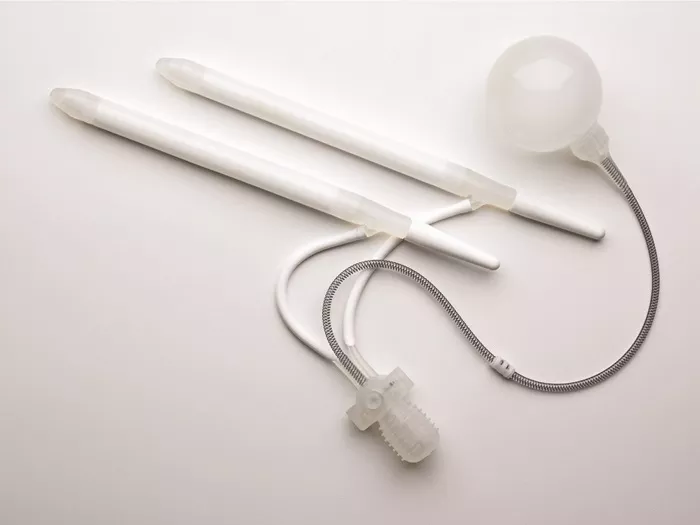Introduction
Erection problems at 16 can be alarming and distressing for teenagers. While erectile dysfunction (ED) is commonly associated with older men, it can also affect younger males. At 16, various physical, psychological, and lifestyle factors can contribute to erection problems. Understanding these causes is crucial for addressing and managing this issue effectively.
Causes of Erection Problems at 16
Erection problems in teenagers can stem from several factors. Identifying and addressing these factors can help resolve the issue and prevent long-term complications.
1. Psychological Factors:
Anxiety and Stress: Teenagers often face significant stress related to school, relationships, and social pressures. Anxiety about sexual performance can also contribute to erection problems.
Depression: Mental health issues like depression can affect libido and sexual function. Teenagers experiencing depression may find it difficult to achieve or maintain an erection.
Low Self-Esteem: Body image issues and low self-esteem can negatively impact a teenager’s sexual confidence, leading to erection problems.
2. Physical Factors:
Hormonal Imbalances: Hormones play a crucial role in sexual function. Hormonal imbalances, such as low testosterone levels, can cause erection problems in teenagers
Medical Conditions: Certain medical conditions, like diabetes, obesity, and cardiovascular issues, can affect blood flow and lead to erection problems.
Medications: Some medications, including those for depression and anxiety, can have side effects that impact sexual function.
3. Lifestyle Factors:
Poor Diet and Lack of Exercise: An unhealthy lifestyle, including a poor diet and lack of exercise, can affect overall health and sexual function.
Substance Abuse: The use of alcohol, tobacco, and recreational drugs can impair sexual performance and lead to erection problems.
Sleep Deprivation: Lack of sleep can affect hormone levels and overall health, contributing to erection problems.
Impacts of Erection Problems on Teenagers
Erection problems at 16 can have profound emotional and psychological impacts on teenagers. Understanding these impacts is essential for providing support and guidance.
1. Emotional Distress:
Frustration and Embarrassment: Teenagers may feel frustrated and embarrassed about their erection problems, leading to emotional distress.
Fear of Rejection: Concerns about sexual performance can cause fear of rejection by peers and romantic partners.
Isolation: Teenagers may withdraw from social interactions and relationships due to embarrassment and fear of judgment.
2. Mental Health Issues:
Increased Anxiety: Ongoing erection problems can exacerbate anxiety, creating a cycle of performance anxiety and sexual dysfunction.
Depression: Persistent erection problems can lead to feelings of hopelessness and depression.
3. Relationship Strain:
Communication Barriers: Teenagers may find it challenging to discuss their erection problems with partners, leading to misunderstandings and relationship strain.
Reduced Intimacy: Erection problems can reduce sexual intimacy, affecting the overall quality of relationships.
See Also: Can Prostate Cancer Cause Testicular Swelling?
Addressing Erection Problems at 16
Addressing erection problems in teenagers requires a comprehensive approach that includes physical, psychological, and lifestyle interventions.
1. Seeking Medical Help:
Consult a Healthcare Professional: Teenagers experiencing persistent erection problems should consult a healthcare professional to identify underlying causes and receive appropriate treatment.
Hormonal Testing: Hormonal imbalances can be identified through blood tests. Treatment may include hormone therapy if necessary.
Medication Review: Reviewing current medications with a healthcare provider can help identify potential side effects that impact sexual function.
2. Psychological Support:
Therapy and Counseling: Speaking with a therapist or counselor can help address anxiety, depression, and low self-esteem. Cognitive-behavioral therapy (CBT) is particularly effective in treating performance anxiety.
Sex Education: Comprehensive sex education can help teenagers understand sexual health and reduce anxiety about sexual performance.
3. Lifestyle Changes:
Healthy Diet and Exercise: Adopting a healthy diet and regular exercise routine can improve overall health and sexual function.
Avoiding Substance Abuse: Teenagers should avoid alcohol, tobacco, and recreational drugs to prevent their negative effects on sexual health.
Improving Sleep Habits: Ensuring adequate sleep can help regulate hormone levels and improve overall well-being.
4. Building Healthy Relationships:
Open Communication: Encouraging open communication with partners about sexual concerns can reduce anxiety and improve relationship quality.
Fostering Trust: Building trust and intimacy in relationships can help teenagers feel more comfortable and confident in their sexual experiences.
Conclusion
Erection problems at 16 can be a complex and distressing issue for teenagers. Understanding the causes, impacts, and potential solutions is crucial for addressing this problem effectively. By seeking medical help, receiving psychological support, making lifestyle changes, and building healthy relationships, teenagers can overcome erection problems and improve their overall well-being. It is essential for parents, educators, and healthcare providers to offer support and guidance to teenagers facing this issue, ensuring they have the resources and knowledge needed to navigate their sexual health confidently.
FAQs
Is it normal for a 16-year-old to experience erection problems?
Yes, it can be normal for teenagers to experience erection problems due to various physical, psychological, and lifestyle factors. It’s important to seek help if the issue persists.
Can lifestyle changes improve erection problems in teenagers?
Yes, adopting a healthy diet, exercising regularly, avoiding substance abuse, and ensuring adequate sleep can improve overall health and sexual function in teenagers.
Should teenagers with erection problems see a doctor?
Yes, teenagers experiencing persistent erection problems should consult a healthcare professional to identify underlying causes and receive appropriate treatment.
Related topics:
- Best Cutting Diet for a 200lb Man: Effective Strategies for Weight Loss
- Top Five Fat Burners for Men 2024: Effective Supplements for Weight Loss
- Can an Enlarged Prostate Cause Bowel Problems?


